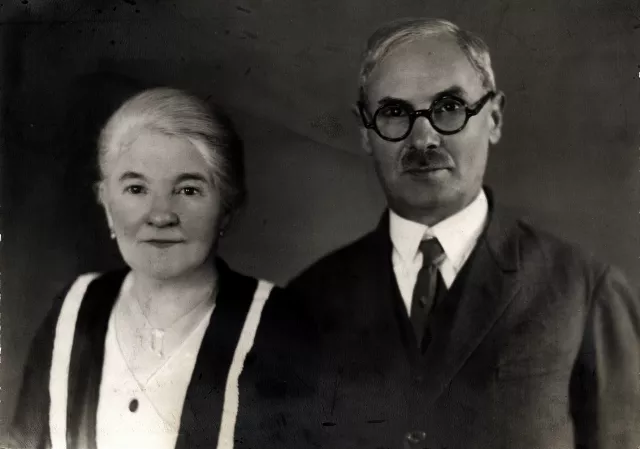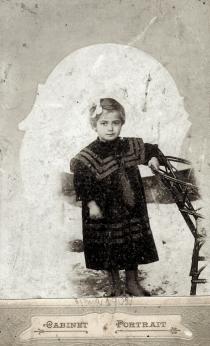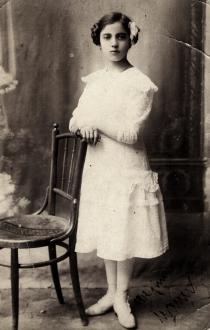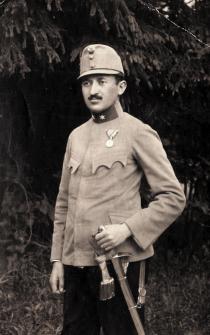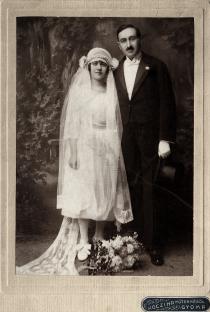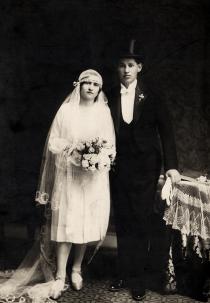Mor and Roza Blum
This is a picture of my maternal grandparents, Mor and Roza Blum, nee Klein. The photo was taken in Gyoma in 1935.
My mother's father was called Mor Blum. He was born in 1868 in Gyongyos. My grandmother, Roza Klein, was probably born at the beginning of the 1870s in Abony. My grandmother had many brothers and sisters, at least eight; she was raised in a very religious family. My grandmother's parents were shoemakers. My grandparents got married in 1898 in Gyoma. I don't know how they got to Gyoma, but one of my grandmother's brothers, Vilmos, got to Gyoma and he had a big department store from the 1880s onwards, and I think they went there because of him. The department store was called Kis-Klein department store. He had five or six assistants and office-clerks.
My grandmother was kosher, but my grandfather always sent me to get things for him; he would always say, 'Go to Rakoczi, and fetch some sausages'. And he would put them in a case and when grandmother wasn't within sight, he'd eat it. At Tabernacles the sukkah was pitched in the synagogue's yard. It was good fun to go in and play there. Their house in Gyoma was a nice big corner house, where the access to the shop was in the middle. It was a big shop and there was a two-bedroom apartment. There was a covered carriage entrance, and further on there was another apartment and a shop, which was rented out. They rented the shop to a pattern-stenciller for embroidery. It was also a Jew who rented it.
My grandparents owned the first shop, a grocery, haberdashery, and dry goods shop. It was rather big, but there were no employees, they ran it alone. They opened at 7 in the morning and it was open until 6 o'clock; on Saturday until midday; on Sunday it was closed. But people came in every five minutes on Sunday, saying, 'Ah, Mrs. Blum, I'm out of flour', or 'I'm out of sugar', or 'I'm out of salt'. Buying on trust was in vogue there. Everybody was a permanent customer. They had a book, and we had a big book, in which everybody got a page. They wrote in their book as well, as in ours, what they had bought and they paid on the first day of the month. My grandparents could also buy on credit from wholesalers. There were a few merchants in Gyoma about whom merchants said they could buy on credit; there were others who could buy only in cash. My grandfather got as much as he wanted. He got the merchandise for 30 days, for 60 days, for 90 days. Of course, for 30 days, it was cheaper, for 90 days it was more expensive because they added the interest. He had these kinds of folders in which the bills were kept. He looked up when they were due to expire, and then he paid them.
